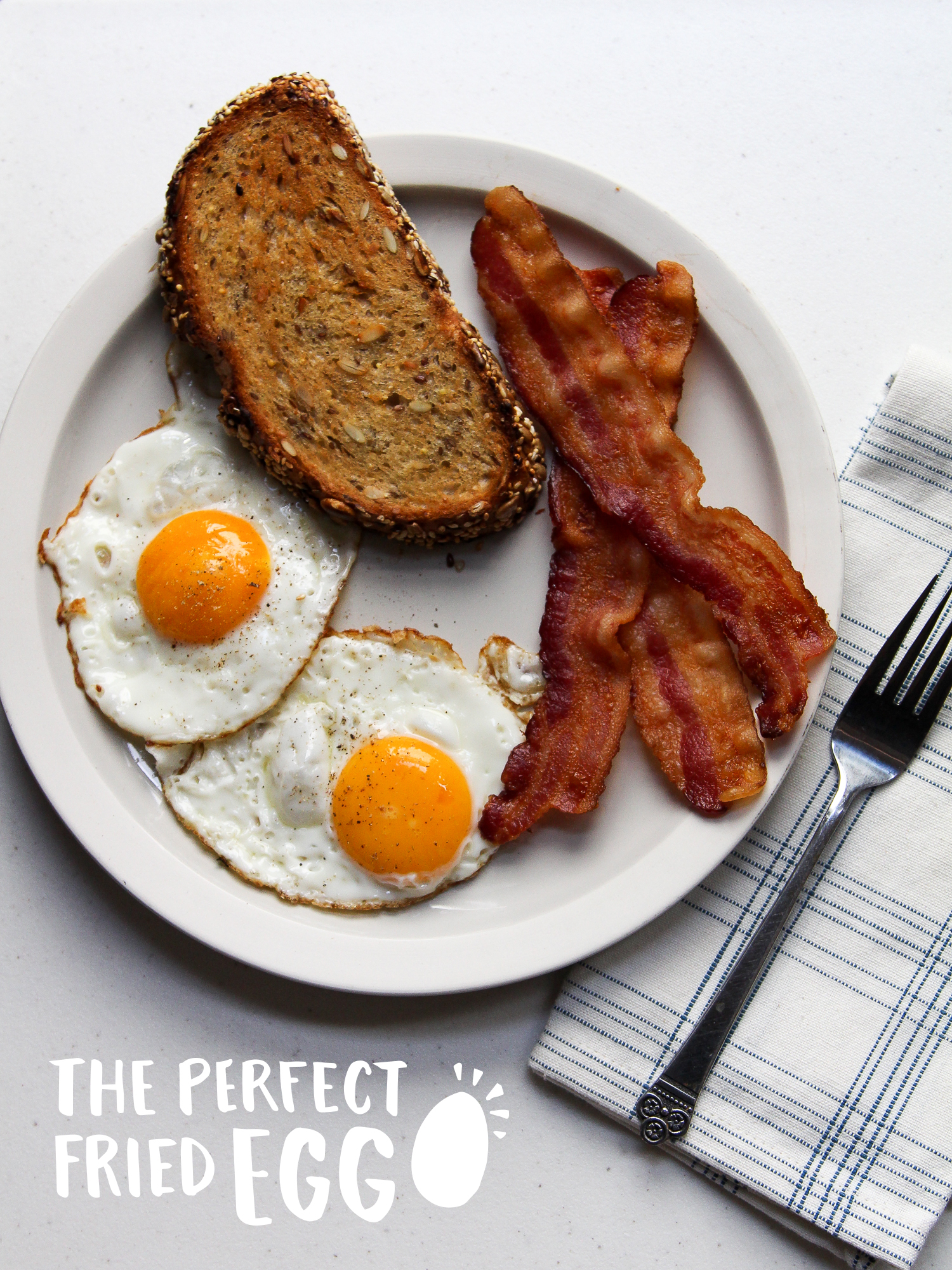How to Make a Perfect Fried Egg
The oldest person in the world right now is an Italian woman named Emma Morano. She was born in 1899, meaning she is the last person on earth to have been alive across three centuries.
Emma, bless her, has eaten three eggs a day for the past 90 years.
Are eggs the secret to her longevity? Beat's me. Emma also has a soft spot for cookies and hides them behind her pillow just like Claudia Kishi from The Babysitter's Club, but I'm not ruling out the eggs thing.
Regardless, everybody — young, old and mid-30s people alike — should know how to make the perfect fried egg.
P.S. I didn't like or eat eggs until I was 22 years old, so now I'm making up for all those lost years to catch up with Emma. What a fool I was. A damned fool.
How to Make a Perfect Fried Egg
The best fried egg recipe, maybe.
"Perfect fried egg" means very different things to different people, but here's my definition: slightly crispy edges, runny yolk. The instructions below will get you there, but I also share some tips to get to your perfect fried egg.
Materials
- eggs
- olive oil
- a non-stick skillet (I love this Zwilling J.A. Henckels pan SO MUCH.)
1. Heat up a NON-STICK skillet on medium heat.
Medium heat is best. You'll know when it's ready if you carefully flick a little bit of water into the pan and it sizzles. If there's no reaction, it's not ready. If it spits violently, lower the heat a little before testing again.
When it's at that right temperature, add 2 T olive oil to the pan. If you prefer to use butter or ghee over olive oil, go for it. They all work well.
2. Add an egg to the skillet.
With the pan and oil now at optimal sizzle stage, carefully crack an egg into the pan. If you're a perfectionist (hey, this is a "Perfect Fried Egg" lesson after all), you may want to crack the egg into a small bowl first and then drop it into the pan so you have more control over where the yolk ends up. NOT LIKE I DID THAT FOR THESE PICTURES OR ANYTHING (I did.).
When you drop it in, the egg white should sizzle and bubble a bit. Do not cover the pan.
3. Fry for 1-2 minutes.
Watch that egg like a hawk, but don't touch it. Hopefully your heat level is perfect from your tests earlier, but adjust the heat if it's looking like it's cooking to fast or slow.
When all of the egg white is just fully set, you're ready to eat. Well, maybe. This is sunny-side up (runny yolk), so if that's what you want it's time to grab a spatula.
If you prefer a medium egg (creamy yolk), you can let it fry for one more minute after the white sets.
If you prefer a hard egg (solid yolk), you can let it fry for two more minutes after the white sets.
At any point, you can gently wiggle the pan or poke the yolk with your finger to gauge what's going on. You don't want to break anything, just test.
If you like your eggs over-easy, over-medium or over-hard, just flip the eggs when they reach their respective "easy," "medium" or "hard" stage and immediately turn off the heat. Then grab a plate, because they'll be ready by the time you bring the plate back to the stove.
4. Eat the egg.
Throw together a classic bacon, egg and toast breakfast (yeah, sometimes I eat real bread — this piece is from the Wedge Co-Op) or top a hash (this roasted parsnip one and this chorizo-sweet potato one are both excellent), top a salad, top fried rice (this chorizo-cauliflower one), top a burger (this Korean one!), top a pizza... a fried egg makes everything better.













